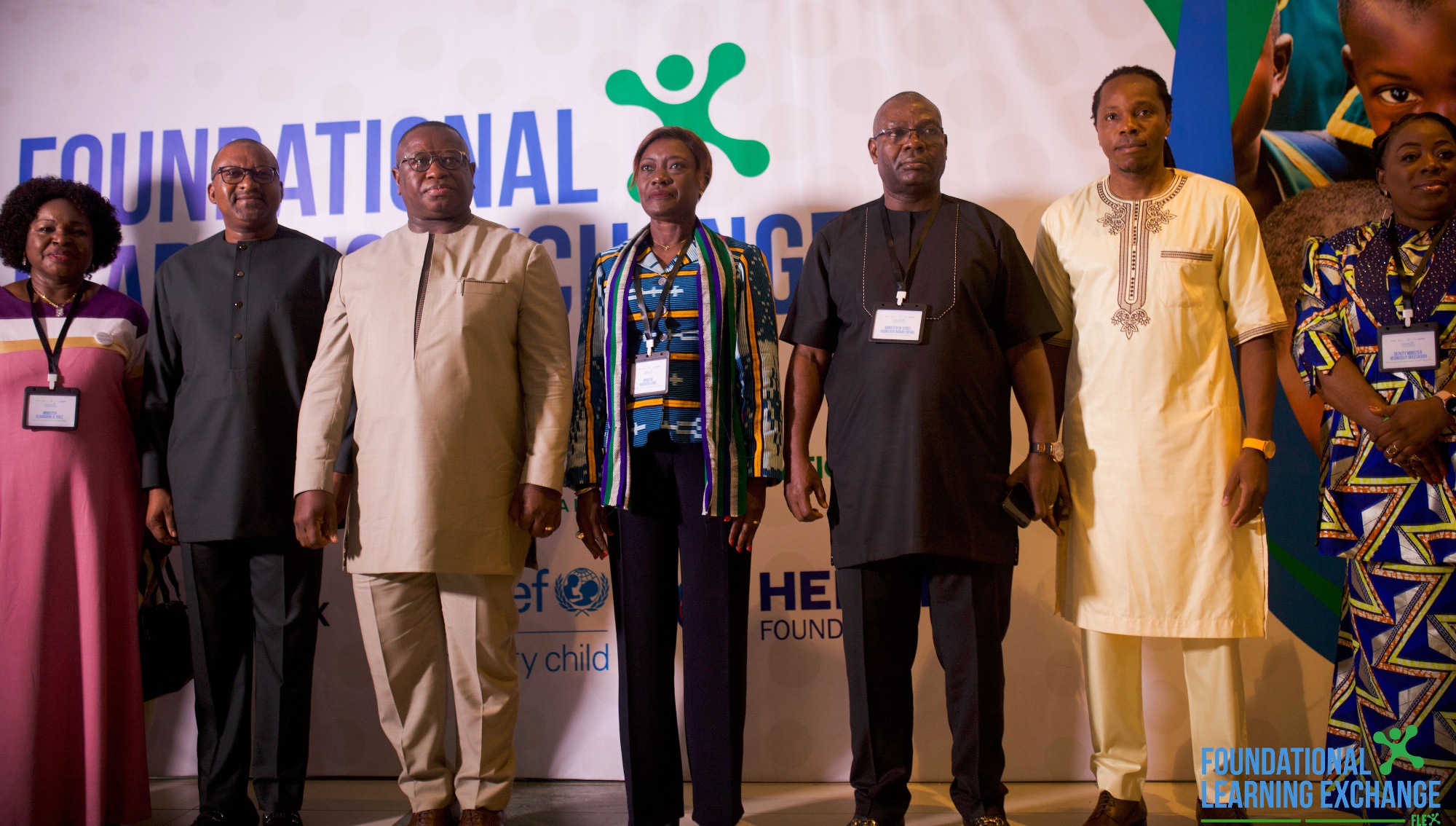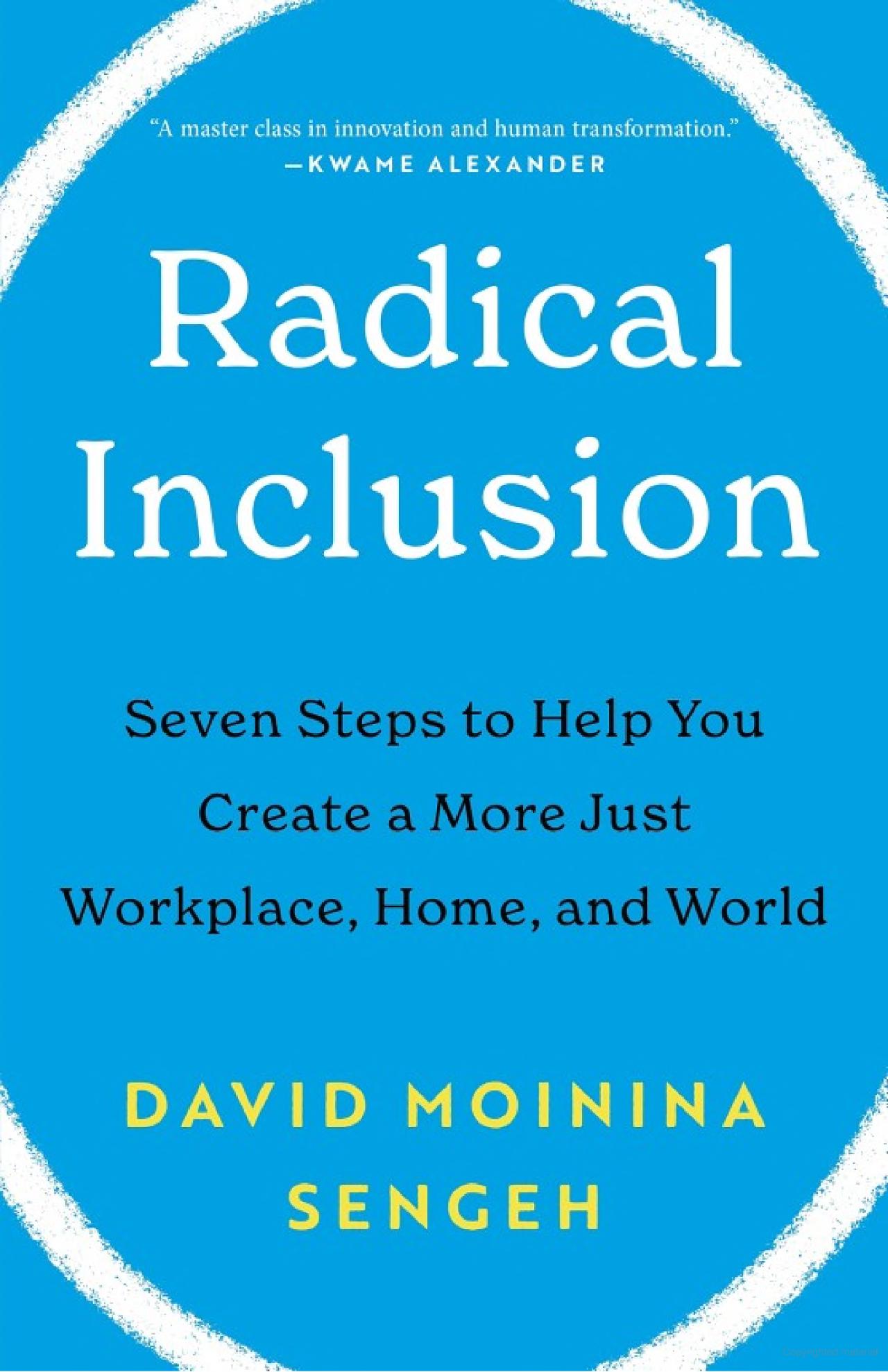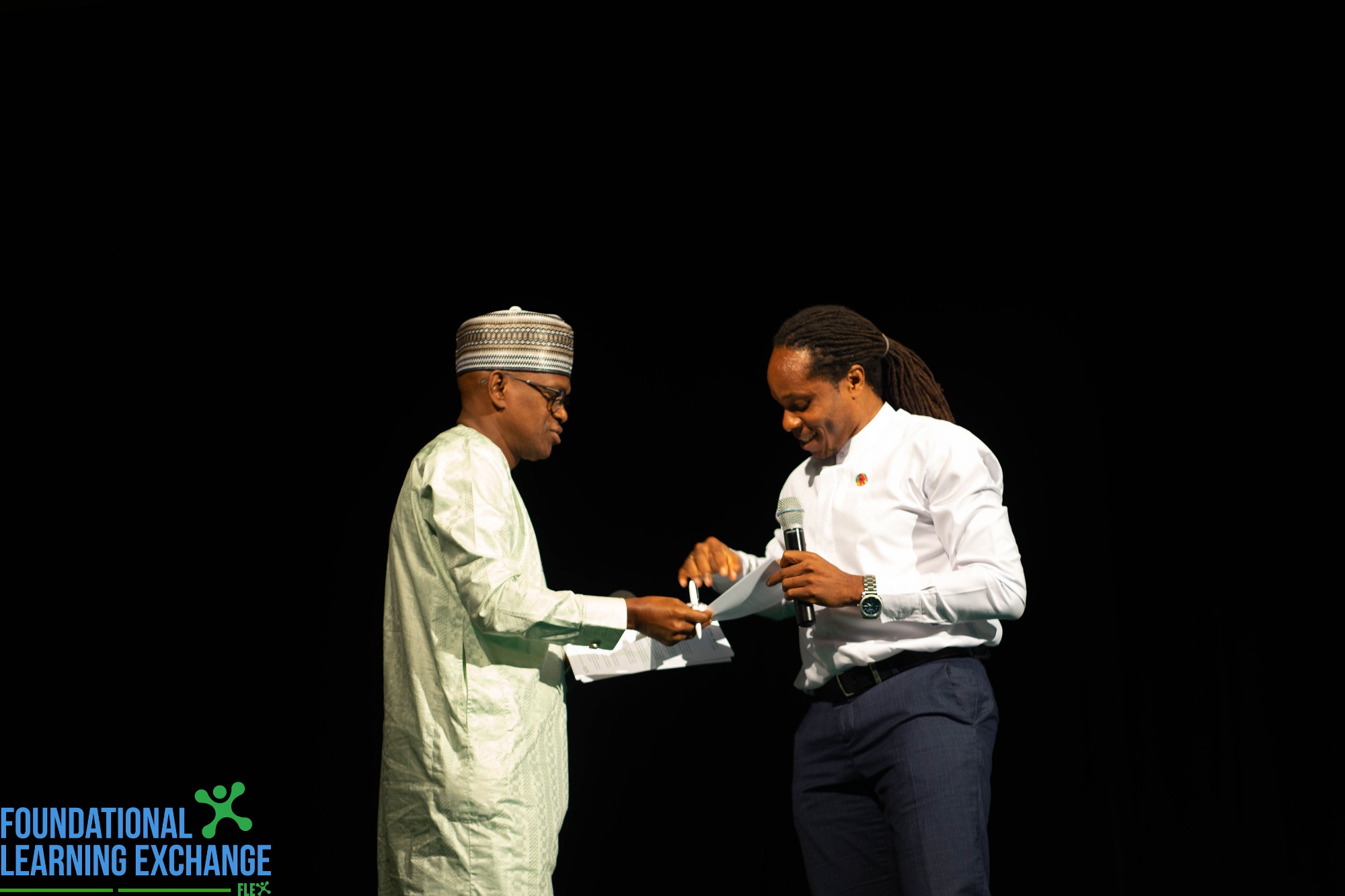Transforming Education
.png)
David Sengeh (UWC Red Cross Nordic, 2004-2006)
Reflecting on UWC's impact over the last 60 years, it's clear that the value of service has played a significant role in the lives of our alumni. Recently, we had the chance to interview Dr David Moinina Sengeh (UWC Red Cross Nordic, 2004-2006) - who became Sierra Leone’s first ever Chief Innovation Officer in 2018, and then Minister of Basic and Senior Secondary Education in 2019. We asked David about his UWC experience, and the way that it has helped to shape his thinking about inclusion, which has formed the mainstay of his policy work in education.
After successfully applying for a scholarship to study at UWC, David remembers being determined to maximise the experience by opting to study in a country very different from his own: “I specifically wanted to go to UWC RCN,” he explains, “because it seemed to be the opposite of everything Sierra Leone was at the time… Norway was at the top of the Human Development Index, whereas Sierra Leone was near the bottom. Then there was the cold climate, the culture, the food, and its remoteness. All of these things were a draw for me. I remember wanting to really experience this difference.”
This sense of there being value in ‘difference’ is something that David still holds very close to his heart: “I had multiple interests as a child, from rapping with my siblings to participating in debating competitions, to enjoying sports and being an advocate for children’s rights... I sought out these different experiences, and was able to build on that when I was at UWC RCN.”
Based on the shores of the fjord of Flekke in Western Norway, the College may have seemed a world away from the challenges facing ordinary Sierra Leoneans, but David says the intentionally diverse student community created many opportunities to appreciate difference both on and off campus: “There were fundraising activities, fashion shows, the exchange of languages, cultures and traditions, and all of this represented a coming together and a celebration of difference.”
David reflects that he began to realise, even at this young age, that this difference is “what makes us human and enables us to solve problems.” And he sees the intentional diversity embedded within UWC’s selection process, and reflected in its schools, as one of its greatest assets: “We live in a world where people’s ‘otherness’ is used to spread hate and misinformation, and most of that is driven by a lack of knowledge. So when you’re exposed to multiple truths at UWC - say two countries who have long histories of conflict with one another like Israel and Palestine - you learn that you can hold these different truths simultaneously, you can follow and participate in the debate without passing judgement.”

As David reflects, he realises how formative these UWC experiences were, and the impact they have had on the work he does now as a government minister: “My time at UWC RCN and the people I met in Norway really helped to change my perspective on certain things, and helped me to realise that if we want a more just society we must do all we can to remove the barriers to inclusion.” David adds that the barriers that separate us as humans can be societal, cultural, legacy or gender-based, but they are also sometimes just the result of laziness, “people tend not to like change, and so they think it’s just easier to keep things as they are - but that just leads to a perpetuation of the status quo.”
 This is why David has advocated so strongly for radical inclusion during his time as Minister for Education so that every child - regardless of family background, location, gender or disability - is educated. David’s forthcoming book, Radical Inclusion: Seven Steps Towards Creating a More Just Society, sets inclusion out as the means towards a more just society, after all David asserts, “all the research points to the fact that diverse teams do better... diversity is better for our health, productivity, performance and joy.”
This is why David has advocated so strongly for radical inclusion during his time as Minister for Education so that every child - regardless of family background, location, gender or disability - is educated. David’s forthcoming book, Radical Inclusion: Seven Steps Towards Creating a More Just Society, sets inclusion out as the means towards a more just society, after all David asserts, “all the research points to the fact that diverse teams do better... diversity is better for our health, productivity, performance and joy.”
However, David is keen to stress that being intentional about radical inclusion is essential to its success: “We need to identify the challenge - name it, learn about it, listen and understand. Then find out why now is the right time to address it, and build a coalition of allies. Then we need to take action - taking the path of least resistance is not an option.”
But, as he points out, it is important that the work doesn’t just stop there: “We then have to create a way for those who’ve been previously excluded, and those who were the excluders, to coexist. And then do it again, and again. Otherwise, the circle will keep getting smaller. We’ve seen that with abortion rights in the US.. in the democratic and free speech space in Europe. We have to keep fighting for more inclusion so the circle is large enough for us all to be in.”
David argues that this is especially relevant in the field of pedagogy, as education has been weaponised in the past, and used as a way to disenfranchise and marginalise. “Even today,” David reflects, “there are many societies where only the chosen few are able to access a good, high-quality education.”
 This is why David has put such a strong emphasis during his time as education minister on making sure every child in Sierra Leone can have access to education, with a focus on the five ‘Cs’: critical-thinking, comprehension, computational thinking, civics and creativity. David sees a strong resonance in the UWC experience, where regardless of socio-economic status, students from diverse backgrounds are brought together to learn and solve problems together. The fact that this learning is also underpinned by a focus on peace and sustainability, is also essential to addressing many of the challenges we face in the world: “Violence is learned, and it can be unlearned,” David emphasises, “one of the ways to do that is through education. The more that people are educated, the less you will have these different expressions of violence - such as gender-based violence. Education is an essential ingredient to make this happen.”
This is why David has put such a strong emphasis during his time as education minister on making sure every child in Sierra Leone can have access to education, with a focus on the five ‘Cs’: critical-thinking, comprehension, computational thinking, civics and creativity. David sees a strong resonance in the UWC experience, where regardless of socio-economic status, students from diverse backgrounds are brought together to learn and solve problems together. The fact that this learning is also underpinned by a focus on peace and sustainability, is also essential to addressing many of the challenges we face in the world: “Violence is learned, and it can be unlearned,” David emphasises, “one of the ways to do that is through education. The more that people are educated, the less you will have these different expressions of violence - such as gender-based violence. Education is an essential ingredient to make this happen.”
Ultimately, David asserts, radical inclusion is about justice. It is a recognition that the exclusion of certain sections of society is fundamentally unfair and unjust: “If we think about peace, we have to think about justice - a lot of what UWC is about is in helping young people to realise they can be agents of change, and then also teaching them the tools they need to make change happen.”
David’s work reflects the impact UWC alums can have in spreading the UWC mission long after they graduate. And as David says, the power represented in this ever-growing alumni community is not something we should underestimate:
“Perhaps we need to start thinking more about how we can captivate and use these alums to achieve our goals… How can we bring these members of the UWC community, now that they are adults in decision-making positions, back to the ideals that they learnt to embody during their time at UWC? Imagine the potential impact that could have on the world.”
